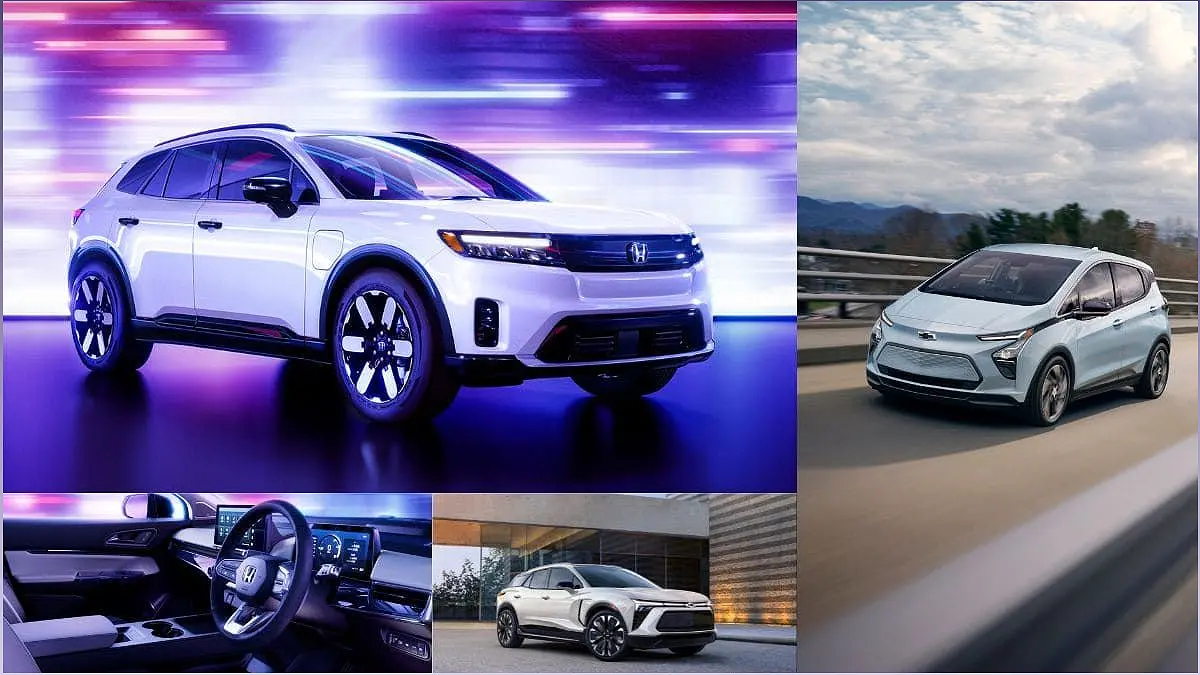This week, Honda and GM made headlines by announcing their decision to cancel their joint plans to develop affordable electric vehicles (EVs) below $30,000. While this news may initially seem discouraging, it doesn't mean that more affordable EV options won't be available. In this article, we'll delve into the reasons why this decision isn't as terrible as it sounds and explore the potential opportunities for other brands to fill the gap in the market.
The Impact of Honda and GM's Decision
Explore the implications of Honda and GM's choice to cancel their joint plans for affordable EVs.
Honda and GM's decision to scrap their plans for affordable EVs has raised concerns and questions about the future of accessible electric vehicles. This subheading will delve into the impact of this decision on the market and the potential consequences for both brands and consumers.
What does this decision mean for the availability of affordable EVs in the coming years? Will other automakers step in to fill the gap? These are some of the key questions we'll address in this section.
Opportunities for Other Brands
Discover the potential opportunities for other automakers to seize the market for affordable electric vehicles.
While Honda and GM's decision may have created a void in the market for affordable EVs, it also presents an opportunity for other brands to step up and capture market share. In this section, we'll explore which automakers are well-positioned to fill this gap and offer affordable electric vehicles to consumers.
Brands like Hyundai, Nissan, and have already made strides in the electric vehicle market with models that offer a balance of affordability and performance. We'll take a closer look at their offerings and how they compare to Honda and GM's canceled plans.
The Cost Savings of Electric Vehicles
Examine the financial benefits of owning an electric vehicle and how it can offset the higher upfront cost.
One of the main concerns with electric vehicles is their higher upfront cost compared to traditional gasoline-powered cars. However, it's important to consider the long-term cost savings that come with owning an electric vehicle.
In this section, we'll break down the potential savings in fuel costs, maintenance, and government incentives that can make electric vehicles more affordable in the long run. We'll also provide real-world examples and comparisons to showcase the financial benefits of going electric.
The Role of Government Incentives
Explore the impact of government incentives on the affordability of electric vehicles.
Government incentives play a crucial role in making electric vehicles more affordable for consumers. In this section, we'll discuss the various federal, state, and local incentives available and how they can significantly reduce the cost of owning an electric vehicle.
We'll also provide information on the changes to the federal incentive program, including the option for a point-of-purchase discount, and how it can further enhance the affordability of electric vehicles. Additionally, we'll highlight specific examples of how these incentives have made electric vehicles more accessible to a wider range of consumers.
The Future of Affordable Electric Vehicles
Look ahead to the future of affordable electric vehicles and the potential for increased accessibility.
Despite the setback caused by Honda and GM's decision, the future of affordable electric vehicles remains promising. In this section, we'll discuss the ongoing advancements in battery technology, manufacturing processes, and economies of scale that are driving down the cost of electric vehicles.
We'll also explore the potential for new entrants in the market and how competition can further drive down prices and increase accessibility. Finally, we'll address the importance of affordable electric vehicles in achieving sustainability goals and the role consumers can play in driving demand for more accessible EV options.
Conclusion
While Honda and GM's decision to cancel their joint plans for affordable electric vehicles may initially seem disappointing, it doesn't mean that the future of accessible EVs is bleak. Other automakers have the opportunity to step in and fill the gap, offering affordable electric vehicles to meet the growing demand.
Additionally, the cost savings and government incentives associated with electric vehicles make them a financially viable option for consumers. As battery technology continues to advance and economies of scale are realized, the affordability of electric vehicles will only improve.
The shift towards affordable electric vehicles is crucial in addressing climate change and achieving sustainability goals. Consumers play a vital role in driving demand for more accessible EV options, and their choices can have a significant impact on the future of transportation.
Overall, while the decision by Honda and GM is a setback, it is not the end of affordable electric vehicles. The future holds promise for increased accessibility and affordability, creating a more sustainable and environmentally friendly transportation landscape.
FQA
What does Honda and GM's decision mean for the availability of affordable EVs?
Honda and GM's decision does create some uncertainty for the availability of affordable EVs in the short term. However, other automakers have the opportunity to fill the gap and offer affordable electric vehicles to meet consumer demand.
Are there any government incentives to make electric vehicles more affordable?
Yes, there are various federal, state, and local incentives available to make electric vehicles more affordable. These incentives can significantly reduce the upfront cost of purchasing an electric vehicle and make them a financially viable option for consumers.
What are the cost savings associated with owning an electric vehicle?
Owning an electric vehicle can result in significant cost savings over time. Electric vehicles have lower fuel costs compared to traditional gasoline-powered cars, and they also require less maintenance. Additionally, government incentives can further offset the upfront cost of purchasing an electric vehicle.
How can consumers contribute to the future of affordable electric vehicles?
Consumers play a crucial role in driving demand for affordable electric vehicles. By choosing to purchase electric vehicles and supporting automakers that offer accessible options, consumers can help shape the future of transportation towards sustainability and environmental responsibility.

